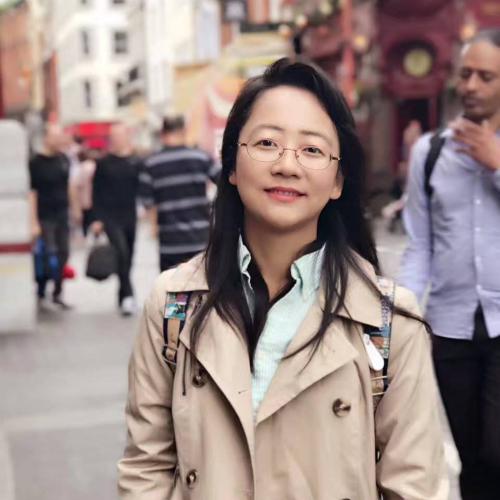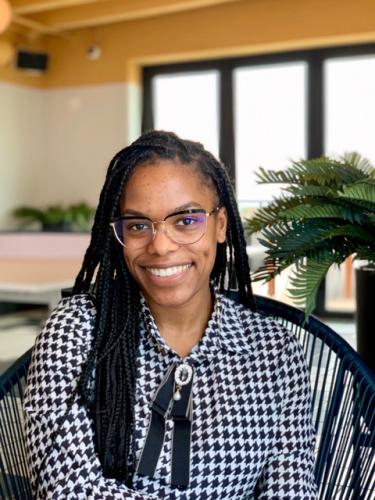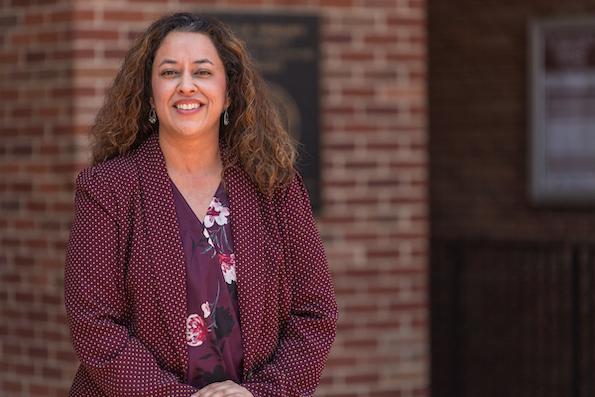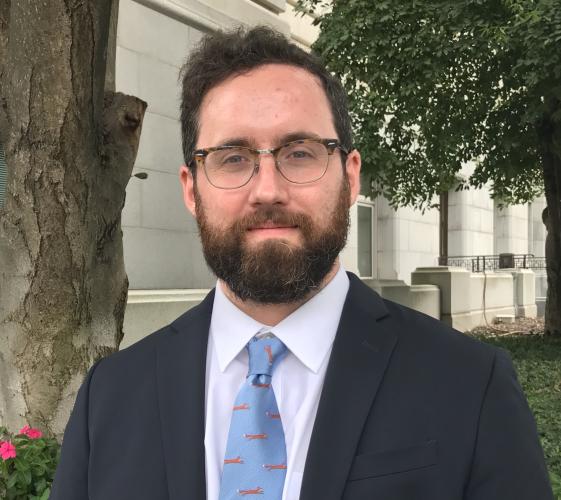For five decades, the Center for American Women and Politics (CAWP) at the Eagleton Institute of Politics at Rutgers University (New Brunswick, NJ) has been committed to promoting greater knowledge and understanding about the role of women in American politics, enhancing women's influence in public life, and expanding the diversity of women in politics and government. Thanks to the generosity and commitment of Pivotal Ventures, an investment and incubation company founded by Melinda French Gates, CAWP will fund twelve research projects – conducted by advanced graduate students and faculty – in 2022 that help to identify and address barriers and opportunities to women’s political power.
Funded research projects were identified by both internal and external reviewers as meeting one or more priorities that laid out in CAWP’s request for proposals, including leading with intersectionality, expanding research focus, and/or meeting the moment. These projects were also identified as among the most promising among all proposals to yield insights that can be translated into action to increase women’s political power, including effective interventions to disrupt gender and/or intersectional biases in U.S. political institutions.
CAWP Research Grant Recipients: Doctoral Students
Understanding Modern Gender Discrimination in US Politics
Abstract: The barriers to women and women of color's entry into political office in the United States today differ significantly from the barriers that they faced in the middle of the 20th century. While women continue to make up a minority of most U.S legislative bodies at all levels of government, recent experimental and observational research indicates a clear consensus that, all else equal, voters at the ballot box may not overtly discriminate against female candidates, suggesting that voter biases against women may not be a significant impediment to women's lack of political representation (Teele, Kalla, & Rosenbluth 2016; Coppock & Schwartz working paper; Lawless 2015). In fact, experimental research indicates that respondents voting in hypothetical elections may actually prefer female candidates over male candidates by an average of two percentage points (Coppock & Schwartz working paper). Moreover, survey results indicate that very few Americans will admit to saying that they will not vote for a female candidate (6% of Americans indicated they would not vote for a woman based on a 2019 Gallup survey) or admit they think women are not emotionally suitable for politics compared to men (13% of Americans reported they think women are not emotionally suitable for politics based on a 2018 GSS survey). What should we take away from these studies? While some argue that gender discrimination no longer exists in elections, I argue that gender discrimination in elections in the United States still exists and that its form has changed from decades past. In line with recent work by Bateson (2020), I argue that women in politics, and particularly women of color in politics, today face strategic discrimination. With support from the Center for American Women and Politics, I aim to test this theory with a series of experimental frameworks in real-world election settings.

Annabelle Hutchinson is a PhD Candidate at Yale University. Her research focuses on gender, race, and class in American politics. Her recent work investigates how men respond to threats to their power and status in society, the effects of jobs loss on political and social attitudes, gender and racial discrimination in elections, the political economy of gender, distributive politics, and experimental methods. She received a B.A in economics and political science from Texas A&M University in 2015.
Por Mi Gente: Gender, Citizenship, and the Power of Community in Immigrants' Risky Political Participation
Abstract: Why do some immigrant women engage in political behavior despite the risk in doing so? I argue that our answers are incomplete because we do not consider how risk varies along citizenship lines and colors the type of political engagement feasible to certain immigrant groups. For example, a protest is not as high risk for a naturalized immigrant than an undocumented person. Yet, when we look at the data, there is not much difference in the levels of participation. My theoretical contribution is to posit that immigrants make risk assessments when participating in politics by assessing risks to themselves or to their communities and by their citizenship status. These assessments, I argue, are also gendered, with women being more sensitive to community risks and therefore taking riskier actions. I explore how citizenship status, gender, and community risk perceptions affect political participation among immigrant communities using in-depth interviews and survey data.

Maricruz Osorio is a PhD candidate at the University of California, Riverside. Broadly, her work examines political engagement and behavior of marginalized groups, with a focus on the political behavior of women and immigrants. Her dissertation work argues that immigrants participate in politics after a series of risk assessments shaped by gender, and citizenship status. She has published in Aztlan, PS: Political Science and Politics, and has contributed to other forms of publicly available scholarship including policy reports, blogs, encyclopedia entries, and public radio.
Outside of academic work, Maricruz is a founding member of People of Color Also Know Stuff. She has been an invited speaker on issues of equity, diversity, and inclusion in academia.
More can be found on her website: http://www.mosorio.info/
Asian American Women in the Political Campaign: The Effect of Race and Gender Intersectionality on Female Voters
Abstract: This project aims to examine the effects of gender and race cues in campaign strategies on female voters’ perceptions of Asian American women candidates. Earlier studies revealed that the intersectionality between gender and racial cues affects voters’ political preferences (Smooth 2006, Brown and Lemi 2021). At the same time, gender traits in campaign ads could also play a role in shaping voters’ perception of candidates (Sapiro et al., 2011; Dolan 2014). However, the literature has focused on the intersectional effects on black women (Smooth 2006, Brown and Lemi 2021) and Latinas (Santia and Bauer 2020) while neglecting Asian American women candidates. This project develops a framework to identify the effect of intersectionality on Asian American women as an extension of an ongoing project using content analysis. With the CAWP data sets, our previous research finds that Asian American women have different campaign strategies associated with racial and gender cues than women candidates in other racial groups. In the following experimental design project, we plan to focus on female voters’ political preference for Asian American female candidates. We will recruit about 600 white women and Asian American women participants, and randomly assign them to one of the two experimental groups: Asian American female candidates with either masculine or feminine traits in her campaign ads. We contend that both gender traits and racial cues affect female voters’ candidate preferences. We expect that, first, Asian women participants will be more likely to support Asian female leaders, and second, Asian American women with masculine traits will be more supported by both white and Asian women respondents, with different significance levels as the function of the racial cue.

Dan Qi is a Ph.D. candidate in the Department of Political Science at Louisiana State University. Her first major is American Politics, and her second major is Comparative Politics. Her main research area is race ethnicity and identity politics, especially in Asian American Politics and immigration. She also has widely ranged ongoing research in gender politics, news media and government, political behavior, public opinion, and political economy. She has publications in peer-reviewed scholarly journals, including Political Behavior, Social Science Quarterly. At the 2021 APSA conference, she presented a paper entitled “American Attitudes Towards Asians in the Trump Covid Era.” Her dissertation is about “Nationalism, Perceptions of Immigrant Threat, and Attitudes Towards Immigrants in Developed Countries.”

Cana Kim is a Ph.D. candidate at Louisiana State University in the Department of Political Science with a primary concentration in International Relations. Her research interests center around constraints on foreign policy decision-making. Her doctoral dissertation delves into the American public perceptions of domestic and foreign identity to specify the micro-foundations of popular foreign policy constraints. Her current research stretches further to gender politics, ethnic-racial identities, media coverage, and East Asian foreign relations. With her second concentration on methodology, Cana uses both large-N quantitative and qualitative (focus group, process tracing) methods as well as experimentation. Cana is a past recipient of the Chair Scholarship (2018) from the Korean American Scholarship Foundation. Cana earned her M.A. and B.A. in political science from Yonsei University in Korea.
Harnessing the Power of Emotion: How Latinas use Emotional Appeals in their Campaign Messages
Abstract: Despite the recent surge of minority women in U.S. politics, the representation of Latinas is strikingly low at all levels of office. Past research offers unclear conclusions as to whether Latina political candidates face a layered set of hurdles associated with their multiple identities at the intersection of their gender and their ethnicity (Bejarano, 2013; Cargile, 2016). This proposed research attempts to bridge this gap in the literature and contributes to work on candidate behavior and campaign communication by investigating the types of campaign messages Latinas employ on the campaign trail. To this end, this project combines an analysis of campaign advertising data from the Wesleyan Media Project and an original survey-based experiment to tackle Latinas’ unique positionality in U.S. politics. More specifically, this project builds upon existing intersectionality literature to investigate how Latina candidates use emotional appeals in their campaign messages in order to sway voters’ attitudes and whether these appeals are advantageous in getting them elected. The results from this project are consequential because they offer insights into the messaging strategies that Latina candidates can employ to overcome the potential intersectional biases they face in an increasingly complex political landscape. Given the changing demographics of elected politicians, this project enhances the demand for a broader understanding of multidimensional models of strategic political communication to increase Latinas’ political power and to improve the descriptive and substantive representation of minority groups in U.S. politics. Funds from the CAWP grant will support the data acquisition stage as well as the data collection stage for this project.

Martina Santia is a Ph.D. candidate in Media and Public Affairs in the Manship School of Mass Communication at Louisiana State University. Her primary research interests include political communication, race, and gender. Martina’s research directly addresses issues of diversity in U.S. politics and strives to center the experiences of marginalized individuals to develop scholarship that will institutionalize diversity, equity, and social justice. Specifically, one strand of Martina’s research examines the role of female candidates and how they manage the gendered political landscape. In an article recently published in Political Research Quarterly, Martina and her co-author focus on how women political candidates manage gendered pressures on the campaign trail by strategically balancing masculine and feminine stereotypes to affect voters’ decision-making and, ultimately, their ability to win elections. Martina’s research has been published in Public Opinion Quarterly, Mass Communication & Society, and Perspectives on Politics among other journals.

Sylvia Gonzalez is a Mexican American Political Science Ph.D. candidate at Louisiana State University. Sylvia is working on her dissertation on Black and Brown Relations and various projects revolving on voting in America. The purpose of her dissertation is to determine the circumstances under which coalitions between African Americans and Latinos are viable and when they are not. Sylvia studies the challenges women face as candidates with a focus on voter prejudices when they are presented with candidate who does not fit the prototypical candidate profile.
The Face of a Movement: Colorism and Racism in the Evaluation of Black Women Leaders
Abstract: Stereotypes of Black women can produce deleterious effects on Black women’s leadership appraisals and perceived governing capabilities (Harris-Perry, 2011; Hicks, 2017). Lemi and Brown found that phenotype plays a vital role in the evaluation of Black women candidates, as Black women with a lighter skin tone and more relaxed hair texture tend to garner significantly more support than those with a darker skin tone and more textured hair (2021). Notwithstanding these limitations, Black women have exhibited adept leadership in the Capitol as well as in activism: #BLM and #MeToo, two of the largest social movements in contemporary politics, were founded by Black women. In the age of social media, it is timely and imperative to take the findings on minority candidate evaluation in the formal political sphere (Weaver, 2009; Philpot and Walton Jr, 2007) and test their validity within the informal political sphere. As social movements surpass formal political institutions in representing diverse ideological and demographic perspectives (Cohen 2005, McAdams, 1982), this paper expands the literature of Black women political leaders to understand the spatial differences between formal and informal politics and their potential, and perhaps unexpected, similarities. With a mixed-method research design encompassing a survey experiment and follow-up interviews, we aim to answer the question: “How do skin tone and hair variation affect the perceived capabilities of Black women leading social movements like BlackLivesMatter and #MeToo?” As social movements become increasingly relevant avenues for political participation, it is all the more crucial to examine the identity politics behind these movements’ leadership. We hope this project will shed light on the implications of a population that has been politically instrumental yet often invisible in academic research.

Andrene Wright is a Ph.D. candidate at Northwestern University specializing in urban politics and political behavior at the intersection of race, gender, and class. Since her undergraduate career, she developed an affinity for work that advanced the political science discipline and the potential to improve the representation and understanding of underserved communities. She engages with this work through methodological training that prioritize an intersectional and community-centered approach, which has provided a stable foundation for her post-graduate journey. Wright's dissertation centers on questions related to Black women mayors' role in African American politics. With this work, she seeks to advance the discipline's understanding of identity politics, complicate the internal dynamics of Black politics more precisely, and situate a Black feminist consciousness in political decision-making. Once completed, she sees this work contributing to race and gender scholarship championing techniques that best account for intra-group differences within marginalized communities. She earned a M.A in Political Science from Northwestern University, a B.A in Political Science from the City University of New York (CUNY) John Jay College of Criminal Justice and was a former American Political Science Association (APSA) Minority Fellow (2017).

Michelle Bueno Vásquez is a third year PhD Candidate in political science and a Master’s Candidate in Statistics at Northwestern University with a focus on race and ethnic politics and methodology. With a vested interest in identities at the margins, her research explores conceptualizations and measurement of intersectionality and its political implications, namely Afro-Latinidad and Black feminism across borders. Michelle has vast experience in a diverse set of methodological approaches, including experiments, surveys, and various qualitative methods. She has worked in multiple research labs in the fields of psychology and political science. In her methodological work, she hopes to develop analytical frameworks, theories, models, and other quantitative as well as qualitative avenues best suited to the study of race and ethnicity, challenging the fallacious norm in the discipline where race is merely a box to check off in analyses. Currently, Michelle serves as a co-chair for the Northwestern Political Science graduate student association, where she focuses primarily on graduate student co-mentorship. She is especially interested in providing opportunities for professionalization to junior scholars of color. To this end she organizes workshops on research ethics, race and ethnic politics, as well as PhD program milestones. Additionally, she is developing the first manual for best practices for graduate student professionalization for her department. Michelle holds a Master of Arts in Political Science from Northwestern University, and a Bachelor of Arts with Honors in Political Science from the University of Chicago.
Faculty/Post-Graduates
Deepening Democratic Engagement in Select Battleground States: Moving Women of Color from Reliable Voters to Candidates
Abstract: Following recent presidential elections, pundits and scholars alike pointed to these elections as evidence of a changing American electorate. The electorate has become more diverse than ever in the country’s history. In particular, the electoral power of women,
African Americans, Latinos, and Asian Americans showed the political parties that these groups are considerable forces in American politics. These significant shifts in the electorate offer opportunities to engage new thinking about the potential of these groups to not only decide elections, but to sustain their civic engagement far beyond simply voting. Beyond their political power in determining election outcomes, the new American electorate has the potential to reshape political representation in elected bodies by becoming candidates themselves, thereby changing the descriptive representation of governing bodies, which arguably changes policy outcomes in more representative ways. Women of color are at the center of these changes, and this project focuses on how they are organizing simultaneously to protect access to the vote for communities of color and increase the numbers of women of color candidates running for office. We explore the mechanisms and organizational structures women of color are formulating to execute these related tasks that deepen democratic engagement, particularly for communities of color. Focusing on select battleground states, we ask: What types of mobilizations, civic groups, training initiatives, and organizations are assuming this role in the democratic process to extend democratic inclusion for women of color? How are women of color networks, civic organizations, and nonprofits at the subnational level engaged in this work?

Christina Bejarano, Ph.D. is a Professor of Political Science at Texas Woman’s University. She has a joint appointment with the Jane Nelson Institute for Women’s Leadership at TWU. Bejarano is a nationally recognized author, speaker, and advisor on Latina electoral politics in the U.S. She studies the conditions under which racial/ethnic minorities and women successfully compete for U.S. electoral office, which is reflected in her book on Latina political candidates--The Latina Advantage: Gender, Race, and Political Success (University of Texas Press, 2013). Her work also focuses on how racial/ethnic minorities and women can shape or influence the current electoral environment, which is reflected in her second book--The Latino Gender Gap in U.S. Politics (Routledge Press, 2014). Bejarano has given talks to various campaign and leadership training programs to share her research on Latina politics.

Wendy G. Smooth, Ph.D. is Associate Dean for Diversity, Equity and Inclusion and Chief Diversity Officer for the College of Arts and Sciences at The Ohio State University. She holds a faculty appointment as an Associate Professor of Women’s Gender and Sexuality Studies, and holds courtesy appointments in Political Science and the John Glenn School of Public Policy. A noted scholar of intersectionality and American politics, she is one of the foremost voices writing on the experiences of women of color as law makers in political institutions and women of color issues in public policy. Her current research focuses on girls of color and their interests in political leadership and the exponential growth in women of color led organizations linking communities of color to the democratic process. She regularly commentates and consults on issues impacting Black women in electoral politics as voters and candidates. Her writings appear in numerous journals including, Politics and Gender; Journal of Women Politics and Policy; and the National Political Science Review and edited volumes such as Situating Intersectionality: Politics, Policy and Power; Gender and Elections: Shaping the Future of American Politics; Legislative Women: Getting Elected, Getting Ahead; and Still Lifting, Still Climbing: Black Women's Contemporary Activism.
Gender, Race, Partisanship and the Dynamics of Candidate Likability
Abstract: What does it mean for a political candidate to be ‘likable?’ Most models of vote choice include some element of likability, polls often include questions about how likable a candidate is, and much media attention during a campaign is devoted to the likability (or lack thereof) of the individuals in the race. Yet, as a concept, likability is difficult to define and little political science literature has systematically considered the factors that contribute to or detract from perceptions of likability. What is clear is that candidate gender, race, and partisanship all play an important role in determining perceptions of candidate likability, often to the detriment of women — and especially women of color. While women’s political representation has increased substantially, enormous disparities still persist. Perceptions of candidate likability influenced by stereotypes and biases based in gender, race, and partisanship may be a key factor in explaining these disparities.
We propose a series of studies which examine the relationship between gender, race, partisanship, and likability for political candidates, culminating in a book-length manuscript. We will seek to answer the following questions: 1. What makes a candidate “likable” or not and does this differ by candidate gender?; 2. How do the content and consequences of likability evaluations vary for women based on race, ethnicity, and/or political party?; 3. To what extent do evaluations of likability predict global evaluations of candidates and vote choice?; 4. Which voter characteristics interact with candidate attributes to influence likability judgments?; and 5. How can/do women candidates navigate the issue of likability in order to increase their electability? In order to answer these questions, we will employ a multi-method approach including interviews of campaign professionals, experiments isolating causal effects, and a survey of voters in order to better understand how likability functions in the “real world.”

Tessa Ditonto is an Associate Professor of Gender and Politics in the School of Government and International Affairs at Durham University. Her research centers on gender and politics and political psychology and focuses on how voters learn about women political candidates and make decisions during political campaigns. She has published numerous articles on how voters evaluate female candidates and how gender-based stereotypes influence impression formation, information search patterns and decision-making among voters. Her work has been featured in journals such as Journal of Politics, Political Analysis, Political Behavior, Public Opinion Quarterly and Political Psychology.

David J. Andersen is an Associate Professor of United States Politics in the School of Government and International Affairs at Durham University. His work focuses on political psychology, political behavior and American campaigns and elections. He has published numerous articles related to how people seek out information about politics, how they process that information, and how they then update their opinions and beliefs. His work has been published in journals such as the American Journal of Political Science, Journal of Politics, Political Analysis, Political Behavior, and the Journal of Experimental Political Science.
Too Feminine to Lead? Identifying Voter Discrimination and Violence Against AAPI Women Candidates
Abstract: Despite their increasing presence in the electorate, Asian American and Pacific Islander women remain severely underrepresented in political offices. This research seeks to explain the stark underrepresentation of AAPI women in elected office by examining patterns of voter discrimination against AAPI women candidates. The aims of this project are two-fold. First, this research examines the presence of voters' gendered racial stereotypes against AAPI women and how it might negatively affect these candidates' electoral success. Being both women and Asian might make AAPI women appear even more feminine than women from other racial and ethnic groups, and thus, voters might consider them less suitable for political leadership positions. Second, this research investigates the extent of sexual harassment targeting AAPI women candidates, focusing on how the surging anti-Asian racism during the COVID-19 pandemic might have exacerbated online violence against AAPI women in politics. Due to their high public visibility, women in politics worldwide are increasingly experiencing sexual assaults both in offline and online spaces. Women of color in politics, in particular, face more intense assaults and abuse. Using survey experiments and social media analysis, this research will investigate the scope of voter discrimination against AAPI women candidates. The findings of this research will make a vital contribution to our understanding of intersectional barriers to women's access to political office. This research will also have significant implications for policymakers and practitioners by urging them to introduce more regulatory measures against vicious online attacks that disproportionately target women of color.

Jeong Hyun Kim is an Assistant Professor of Political Science at Louisiana State University. Her research focuses on democratic representation, gender and politics, and public opinion on policy. She received her Ph.D. in Political Science from Washington University in St. Louis in 2018. Her work has appeared in the American Journal of Political Science, Comparative Political Studies, Politics & Gender, and other journals.
Masculinity, Intersectionality, and Presidential Politics
Abstract: Masculinity is fundamental to the U.S. presidency, the “highest, hardest glass ceiling” (Clinton 2008). Gender-office incongruency has historically made it difficult for feminine and female candidates to win (Conroy 2015, Lawrence and Rose 2009). With the appearance of more potential viable female candidates, we can now test whether and how masculinity (and femininity) influence candidate evaluations in real-world scenarios. Through an original survey of first-in-the-nation Republican presidential primary voters in New Hampshire, we examine the extent to which masculinity shapes how these voters evaluate potential nominees, including white women and women of color. We additionally analyze the ways in which assumptions about the preeminence of masculine traits shapes perceptions of electability and viability, particularly in the early stages of the primary when voters know less about candidates and are more heavily reliant on information shortcuts such as race/ethnicity and gender.
Regardless of how the 2024 field of candidates unfolds, this study will contribute in several ways to our understanding of masculinity and presidential politics. First, we analyze potential presidential candidates to show how early primary voters evaluate candidates’ perceived quality, competency, and electability. In particular, we will examine how ideas about the presidency shape gendered assumptions about actual potential candidates, potentially disadvantaging certain candidates before any votes are cast. Second, we experimentally test how ethnicity and gender, particularly for Asian-American women, might shape presidential candidate evaluations. Third, we will analyze gender gaps in Republican voters’ attitudes about women candidates as well as former President Trump. Overall, our project will bring new evidence to bear not just on whether the presidency is masculinized, but how it is masculinized, with important practical implications for men and women candidates alike.

Dr. Jennifer C. Lucas (Co-Principal Investigator) is Professor and Chair of the Department of Politics at Saint Anselm College. She received her Ph.D. in Government from the University of Maryland - College Park, and previously served as co-editor of the Journal of Women, Politics & Policy. Her research on women candidates and officeholders has appeared in Politics & Gender, Social Science Quarterly, and American Politics Research, and she has co-organized the biannual American Elections Conference since 2014.

Dr. Heather Silber Mohamed (Co-Principal Investigator) is an Associate Professor of Political Science at Clark University. Her book, The New Americans: Immigration, Protest, and the Politics of Latino Identity (2017, University Press of Kansas), was named the Best Book of 2017 by the American Political Science Association’s Latino Caucus, and in 2019, she received the Early Career Award from the Midwest Political Science Association’s Latina/o Caucus. Her research lies at the intersection of race/ethnicity and gender. In 2020, she co-organized the virtual Gender and Political Psychology conference. Prior to pursuing her PhD, she worked for six years as a policy aide in the U.S. Congress.
Masculine and Feminine Attributes: Understanding America’s Changing Conceptualization of Candidates and Parties
Abstract: In the proposed project, we seek funding to leverage an existing data collection effort by developing and implementing a mixed-method approach to analyzing the oft-neglected open-ended candidate and party evaluation items on the 2016 and 2020 American National Election Studies (ANES). This coding project will allow us to pursue two lines of inquiry. First, the data can be utilized to investigate the role of gender in American elections by focusing on the link between voters’ evaluations of the major party presidential candidates and gendered conceptualizations of the political parties. Our primary research questions in this area include: Do voters perceive candidates through an integrated gender-partisan lens? How do voters evaluate and respond to perceptions of “fit” between party and candidate in this regard? Is there a gender dimension to negative partisanship, such that negativity toward one’s political opponents is commonly expressed in terms of gendered traits? By breaking new ground on gendered dimensions of party fit and negative partisanship, our proposed work addresses Priority Two: Expanding Research Focus. Our second line of inquiry utilizes a stand-alone analysis of the open-ended text data from 2020 to address Priority Three: Meeting the Moment. We explore public opinion toward pandemic response and the Black Lives Matter movement from an intersectional framework. Our research question asks: How did intersectional identities, and the sense of linked fate accompanying them, shape issue attitudes, candidate evaluations, and mobilization in 2020? We combine mentions of these issues from our open-ended text analysis with responses to close-ended questions in our analysis. This work is poised to offer insights into how public health issues and systemic racism shaped mobilization and voter decision making in 2020 across race and gender groups in the electorate and how these factors might continue to play a role in future American elections.

Dr. Heather L. Ondercin is an Assistant Professor in the Department of Government and Justice Studies at Appalachian State University. She received a dual PhD in Political Science and Women’s and Gender Studies from The Pennsylvania State University in 2007. Her current research focuses on how social identities translate into partisan identities and the emergence and success of women candidates. Her scholarship has been published in The British Journal of Political Science, Political Behavior, Political Research Quarterly, Politics & Gender, and a number of other scholarly journals.

Dr. Erin C. Cassese is a Professor in the Political Science Department at the University of Delaware. She received her Ph.D. in Political Science from Stony Brook University in 2007. Her current research examines voter psychology, with an emphasis on the role of gender in American political campaigns and elections. This work has appeared in Political Behavior, Political Research Quarterly, Political Psychology, Politics & Gender and a number of other scholarly journals. Cassese’s scholarship has been cited by national media outlets, including The New York Times, The Washington Post, Vox, and FiveThirtyEight.
Violence Against Asian American Women in Politics (VA3WIP): Consequences for Political Candidacies, Ambition, and Representation
Abstract: In the Violence Against Asian American Women in Politics (VA3WIP) project, we examine how the rising prominence of Asian American women as candidates and elected officials intersects with the rise of violence and threats of violence against them. We propose a mixed methods approach that includes a larger survey of all Asian American elected officials coupled with in-depth interviews. This project will extend the nascent theories of violence against women in politics to the unique intersections of gender and race for Asian American women and detail how violence influences their candidacies, political ambition, and representation.

Paru Shah is a Professor of Political Science at the University of Wisconsin, Milwaukee. Her areas of expertise are race and politics, state and local politics, and public policy. She has researched and written extensively on the factors that influence women and women of color’s decisions to run for office, their likelihood of winning, and the subsequent policy changes. Paru is also an elected school board member in Shorewood, Wisconsin, and has worked with other electeds of color on developing strategies to be successful in office.

Sameena Mustafa ran for Congress as a Justice Democrat as the only Indian Muslim running for Congress nationally and the first woman of color to run in her district in 2018. She uses the lessons of her run to advise progressive candidates and nonprofits, specializing in women of color and marginalized folks. On her show “Hand Her the Mic” and via the Veralo fellowship, she features and elevates women of color leaders. Before and since running, she demonstrated her commitment to her community through leadership positions at the League of Women Voters, NPR/Chicago Public Media, YWCA, United Way, and Asian Americans Advancing Justice. Born and raised in Chicago and now based in Los Angeles, she holds a degree from Northwestern University in Philosophy and Poetry.
When You See Me, Do You Hear Me? The Persuasive Power of Black Women
Abstract: Movements like #MeToo and #BlackLivesMatter use social media to share individual experiences and personal pleas to galvanize others to take action for social change. The success of these messages depends upon the reach and persuasiveness of their messengers. Due to existing power disparities, race, gender, and the intersection of race and gender, can affect the reach and persuasiveness of messages. Black women may be uniquely trusted messengers for some groups, but they may also have more difficulty getting other groups to listen or be persuaded. If segments of the public are more likely or less likely to hear and respond to calls for reform depending on when they are made by a Black woman compared to a white person or Black man, this creates both challenges and opportunities for sustaining coalitions for change. Differential responses could also lead to some interests being overlooked by movements and the public. Our research will use a choice-based survey experimental design to assess whether people listen to and are convinced by social movement messages from Black women as compared to white women, Black men, and white men. This project has implications for social movement strategy but also broader implications for how we communicate with one another and how we convey who has authority.

Tarah Williams is an Assistant Professor of Political Science at Allegheny College. Her research agenda examines how prejudice (particularly racial and gender-based prejudice) shapes American political life and culture. Her work has appeared in the Journal of Politics, Politics, Groups and Identities, the Journal of Experimental Political Science and PS: Political Science & Politics. She teaches courses on race, gender, campaigns and elections, and political psychology.

Kylee Britzman is an Assistant Professor of Political Science at Lewis-Clark State College. Her research in U.S. politics focuses on voting behavior, political communication, and perceptions of electability particularly based on candidate gender and race. Her work has been published in the Journal of Experimental Political Science, Journal of Political Science, PS: Political Science & Politics, and Social Science Computer Review. She teaches courses on research methods, gender and politics, and political psychology.

Paul F. Testa is an assistant professor in the Department of Political Science at Brown University. His research focuses on how interactions with the criminal justice system shape political behavior. His work has appeared in American Journal of Political Science, Journal of Politics, Political Behavior, and Public Research Quarterly. He is an affiliate with the Taubman Center for American Politics and Policy.

